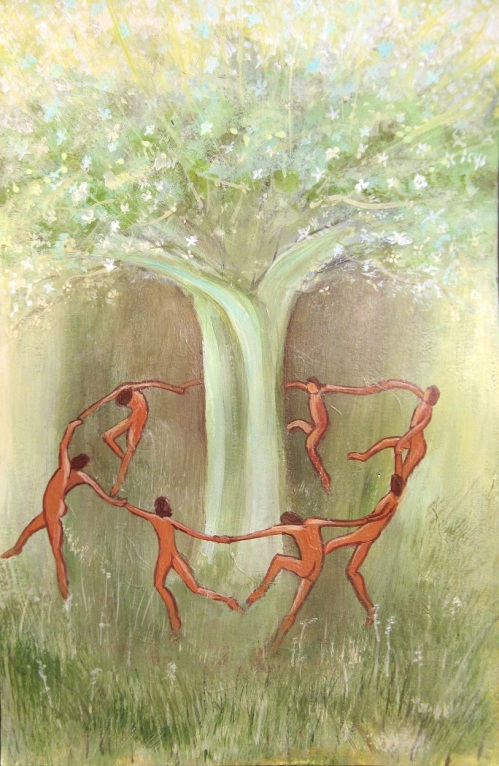For January 6th (the feast of epiphany) in my Anthology from Canterbury Press, Waiting on the Word, I have chosen to read, as the final poem in the collection The Divine Image by William Blake. The Feast of the Epiphany celebrates the visit of the magi to the Christ-child, and so the inclusion of the Gentiles in the Gospel story: and not simply the Gentiles in some generic way, but all the distinct races, cultures and religions of ‘the nations’, which is why the tradition of depicting the three kings as representing three different races is so helpful. On this Feast Day, it might seem obvious to choose one of the well-known poems that recall or describe that familiar scene: Eliot’s ‘The Journey of the Magi’, or Yeats’ poem ‘The Magi’. But I wanted in this final poem to move from the outward and visible picture which already adorns so many of the Christmas cards we will be taking down today, and as those outward images fade away, to come through poetry to the inward and spiritual truth which they proclaim. And that spiritual truth is that in the Incarnation Christ, in taking on human nature, takes on, becomes involved in, visits, redeems the whole of humanity, not just the chosen people to whose race and culture he belonged. And what is more, when the fullness of God comes to dwell in the fullness of Christ’s humanity, then that mysterious ‘image of God’ in which all humanity was made (Genesis 1:27) is at last restored. And we can see that the Light who so uniquely and particularly became the Christ-child at Bethlehem is also, as John’s Gospel clearly proclaims, ‘The true light that enlightens every man was coming into the world’ (John 1:9). It seems to me that it is William Blake’s poem ‘The Divine Image’, rather than any specifically Christmas or Epiphany verse, that goes to the heart of these things.
You can hear me read this poem by clicking on the title or the play button. The image above was created by Linda Richardson, for the unique book of responses to Waiting on the Word last year, and again this is one of my favourites. As we finish this series of posts I would like to thank Linda for allowing me to share these beautiful images with you and for making such a rich and creative response to my book in the first instance. She will soon be establishing a website for more of her art and when she does so I will write about it on this blog. about this final image Linda writes:
Once again I return to Matisse and his dancers. The little figures are naked and in a trance of wild woodland worship. They are unselfconscious and free, not arguing a doctrinal point but holding tight to each others hands as they whirl around a Divine tree. Our minds and thinking can ensnare us like a flies on a spider’s web, but our bodies do not lie. If we are stressed, we can talk ourselves into believing we are relaxed, but our jaw may be tight and our brow heavy. In the same way we sometimes mistake ‘correct doctrine’ for love, and wonder why we feel so angry when our doctrines are attacked. In the image, the little figures are ‘every man’ and ‘every woman’. They are lost in the present moment, and the only government is the beauty of the silent tree around which, with all their hearts, they dance.
There exists only the present instant… a Now which always and without end is itself new. There is no yesterday nor any tomorrow, but only Now, as it was a thousand years ago and as it will be a thousand years hence. Meister Eckhart
You can find the words, and a short reflective essay on this poem in Waiting on the Word, which is now also available on Kindle
The Divine ImageWilliam Blake
To Mercy, Pity, Peace, and Love
All pray in their distress;
And to these virtues of delight
Return their thankfulness.
For Mercy, Pity, Peace, and Love
Is God, our father dear,
And Mercy, Pity, Peace, and Love
Is Man, his child and care.
For Mercy has a human heart,
Pity a human face,
And Love, the human form divine,
And Peace, the human dress.
Then every man, of every clime,
That prays in his distress,
Prays to the human form divine,
Love, Mercy, Pity, Peace.
And all must love the human form,
In heathen, Turk, or Jew;
Where Mercy, Love, and Pity dwell
There God is dwelling too.
If you would like to encourage and support this blog, you might like, on occasion, (not every time of course!) to pop in and buy me a cup of coffee. Clicking on this banner will take you to a page where you can do so, if you wish. But please do not feel any obligation!









